A Conversation with the Cast of THE REVOLUTIONISTS
Chatting with Asabi Goodman, Lisa Hickey, Lauren Roche and Amanda McErlean.
To celebrate Women's History Month, next up on my arts in conversation is Asabi Goodman, Lisa Hickey, Lauren Roche and Amanda McErlean from the cast of The Curator's The Revolutionists. Their respective bios are featured at the bottom of this article. Here's what these remarkable ladies had to say...
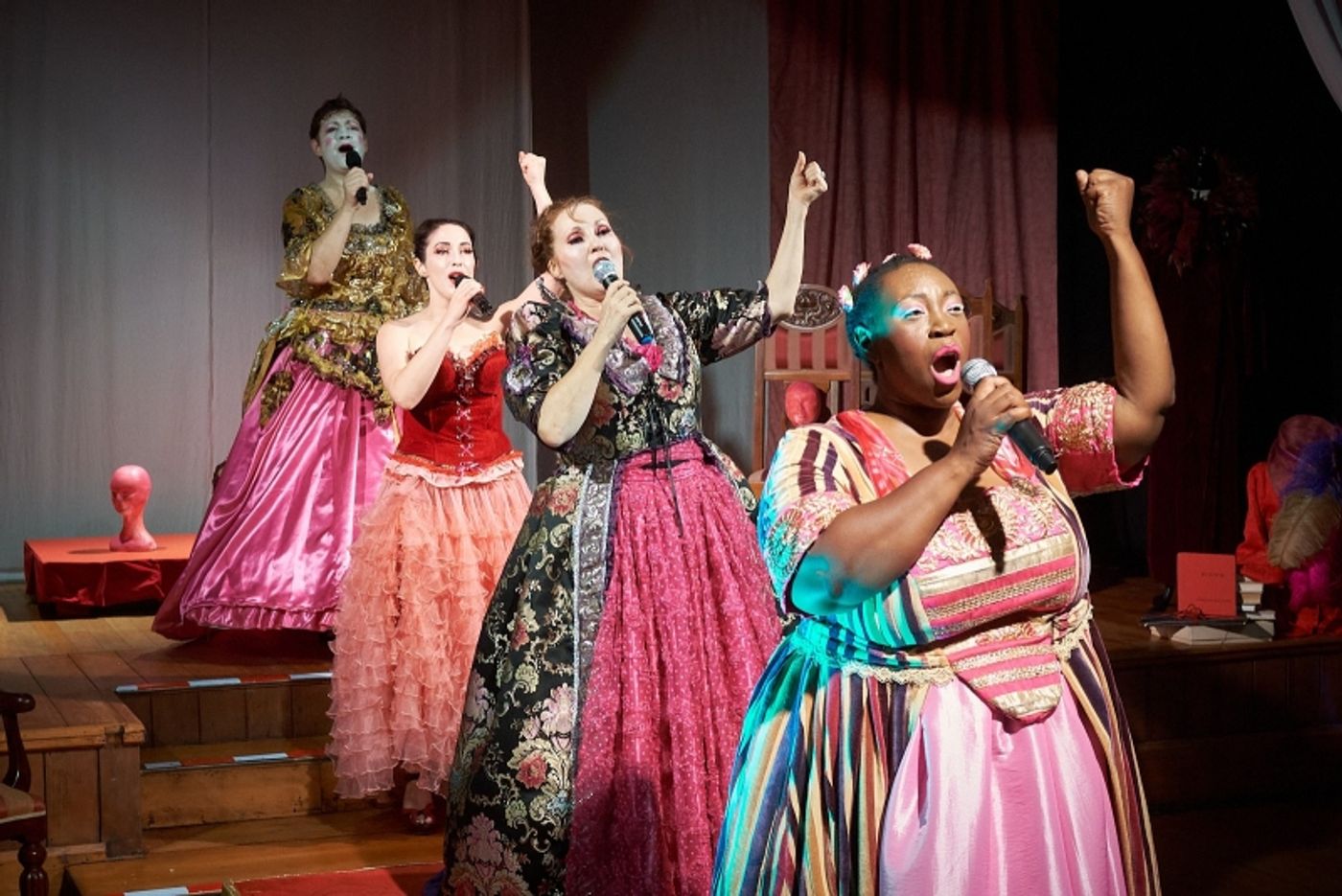
VIRAG: The Revolutionists is a new play about four women who lived in France during the French Revolution's Reign of Terror. These four woman are former Queen Marie Antoinette, assassin Charlotte Corday, playwright Olympe de Gouges, and Caribbean spy Marianne Angelle; four unlikely women who are put in a room together. What has it been like to bring these characters to life?
LAUREN: It's been wonderful to see how these four very different characters all have this underlying strength, passion and resilience that spurs them on. And I love that there is this feeling of sisterhood once all four women are in the room together. A sisterhood that supports them, challenges them, inspires them.
ASABI: It's actually been quite interesting to see how they would all react to each other. Of course, we try to play their reactions realistically, and I think we do to some extent. As modern humans, we try to see the best in our forefathers (mothers? Ha ha ha), and have this driving hope that these women, in particular - based on what they stood for - would at their core, have a true want for equality and humanity, and would thus treat each other with respect and care. This is what we at least try to embody in our performance.
AMANDA: Bringing the Marie Antoinette from The Revolutionists to life has been a lot of fun as she is not necessarily a depiction that is completely historically accurate! This Marie is a dream-like creation of Olympe De Gouges and is a bit of an airhead! She is also pretty self-centred and totally disconnected from 'real life'. These qualities make her a wonderful character to play with, in isolation, but it is her interactions with the other three characters who appear more 'realistic' that is the biggest challenge. My aim is to achieve an empathetic connection between Marie and the other women, hopefully presenting the audience with the seed of a thought that perhaps the story of Marie Antoinette isn't completely written in black and white.
LISA: It has been a fascinating experience to bring these four characters to life, and certainly hard work! Of course, it's a journey of discovery, finding out how to portray and do justice to a woman like Olympe de Gouges. She was really incredible - strong, brave, outspoken, prolific and visionary. She had a great passion for social and political reform for women and children. Yet, history buried her, along with so many other victims of the Reign of Terror. One of the main concerns with bringing Olympe to life is to develop her contribution to the comedy of the piece, which the playwright has said is foremost. The character as written really struggles with her own fear of death and summoning up the courage to support the others as they go to their executions. Yet herein lies a good deal of comedy. Her personal arc towards a redeeming exit from this world can be played with a great deal of humour. - She's full of hilarious one-liners, self-deprecating revelations and exhibits a child-like excitement at her discoveries.
This play is written as a "vision-in-death" of the playwright - her own spontaneous creation as she stands on the scaffold within seconds of personal extinction. So, Olympe scurries about moving props and set pieces and furiously writing the play as it unfolds. This gives my character license for all sorts of comic stage business as well - so I've had plenty of scope to contribute to the comedy that's integral to this play. - Then, of course, the challenge is to balance the pathos and poetry with the comedy. But it's beautifully written, so it hasn't been hard to navigate between these poles.
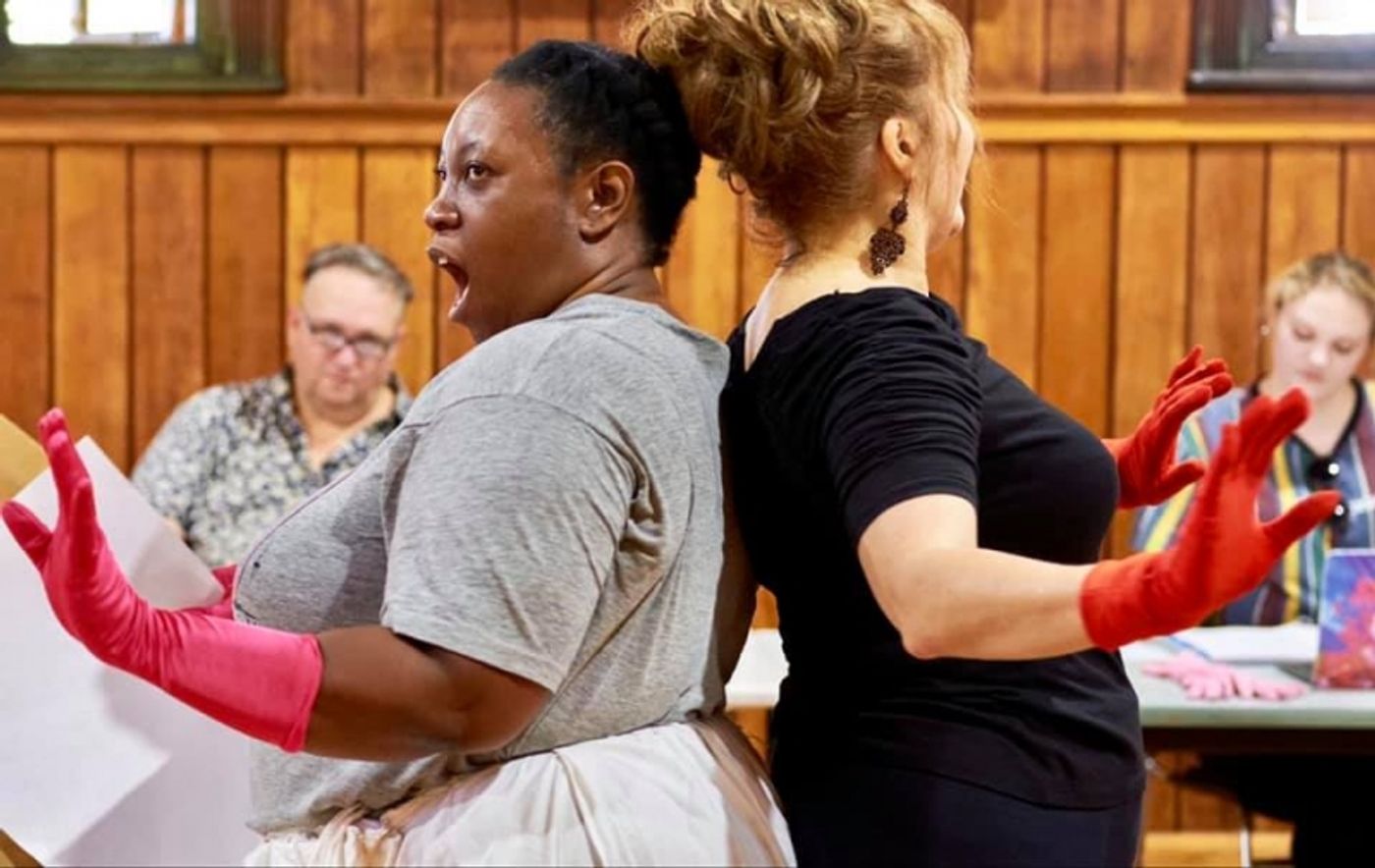
VIRAG: Did you have much experience with this text prior to being cast in this production or was this your first time getting acquainted with it?
ASABI: Prior to being cast in this production, I was not aware of this play.
LAUREN: I hadn't been exposed to play prior to being cast so it was a wonderful world of discovery from the get-go!
LISA: It was my first time. This is an Australian premiere of this production and I hadn't read it before either. I had seen Gunderson's Christmas at Pemberly and had been delighted by her writing. I majored in French at Uni and also have a passion for history, so it's been a real pleasure working on this play. The French Revolution was such an extraordinary event that it's important to be reminded of its impact on the world we live in. And - given events in Myanmar recently - the fragility of democracy. The play also deals with slavery, specifically plantation slaves in the French Caribbean. However, with an estimated 40 million people currently trapped in modern slavery - with over 70% of those being women - it's vital that these issues of Liberté and Egalité continue to be fought for.
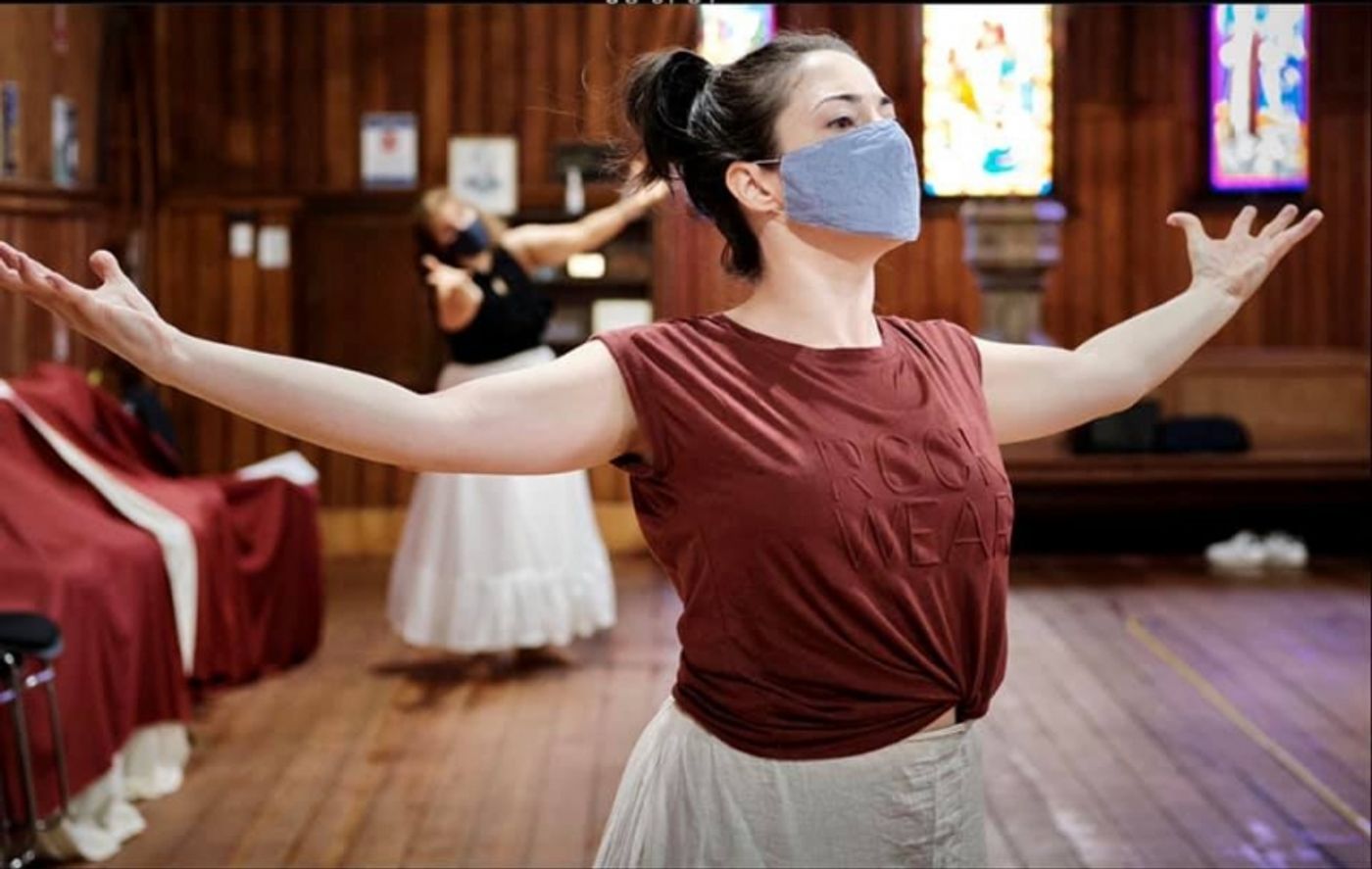
VIRAG: Has performing this show during Women's History Month added another layer of meaning to it for you personally as well as the production as a whole?
ASABI: I feel this play would be meaningful to me no matter when I perform it. It's extremely relevant and complex and tells a story that resonates through time and space. There are some hidden gems in this play that one could miss if they don't listen carefully. No piece of text is there accidentally.
LISA: Yes, I'm proud to be doing a play which has such strong feminist themes in this important month. The play comments on HIS-story, as opposed to Her-story and women's erasure from history is nothing short of shameful. If history is written by the victors, the institutionalised patriarchy which has characterised European social structures ensured that women were indeed air-brushed out.
The vilification of Marie Antoinette was not surprising. - The country was groaning under the weight of grinding poverty, foreign wars and tremendous class inequity and exclusion from power for the middle and working classes. However, Olympe de Gouges did everything right. She was a standard bearer for social reform and a tireless worker for greater equality and freedom. She should have been the darling of the Revolution. However, she dared to criticise the revolutionary leaders and her fate was sealed. As my character says in the play, these men just weren't interested in the rights of the FEMALE citizen. This play is a timely reminder that women have been struggling to have their voice heard for centuries. We celebrate their lives and achievements!
LAUREN: Woman's History Month sets the record straight. Women's stories are owned and revealed. I think Charlotte Corday is a great example of how history distorts women's narratives and this is something that Gunderson touches upon in the play when creating an arc for Charlotte. The historical representation of Charlotte is contradictory. Her actions took place over four days from assassination, arrest, trial and execution. Her actions horrified revolutionaries, in part because of her demeanour, beauty, youth, intelligence, wit and integrity. At the time of her arrest, Charlotte presented as an unsettling figure. She had transgressed gender expectations, not only breaking the line between public and private sphere and the role of women within each, but by taking agency as a political actor. This was something that, at the time, people could not get their heads around. She could not be a woman and a political actor.
Thinking that she was a mindless actor for a male counterpart, Charlotte was reduced to a virginity test. In the brief time that followed, Corday kept her courage, asserting her premeditation, refuting accomplices, acknowledging her independent action and accepting death. But different histories present her as slightly unbalanced, a zealot not a young woman who sacrificed her life to kill radical journalist, Jean-Paul Marat, a man who was responsible for the deaths of thousands of innocent people and potentially hundreds of thousand more.
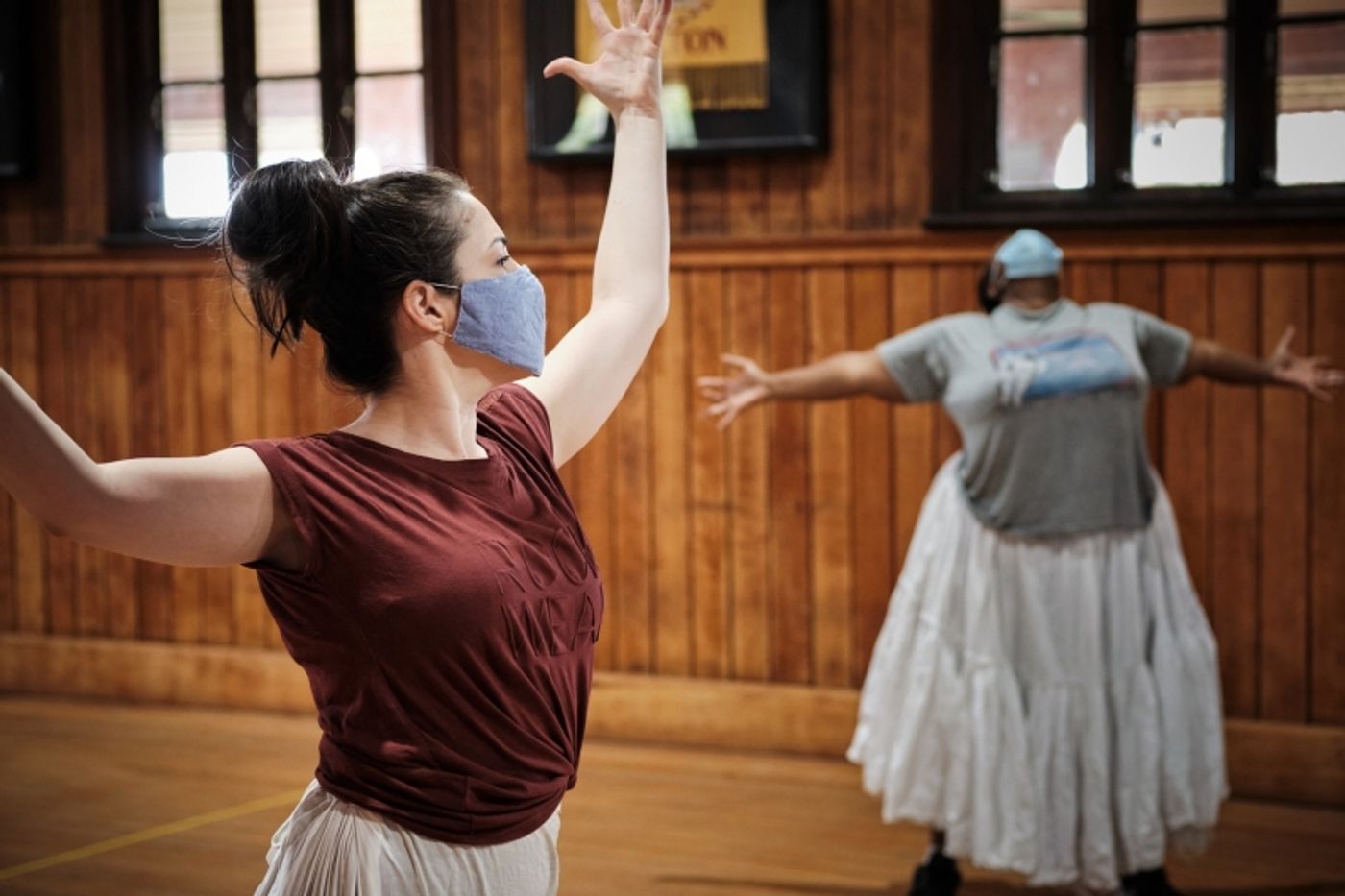
VIRAG: What, in your opinion, do you think this play teaches us about being a woman and the role history has placed on women?
AMANDA: I think the play is a great reminder to be grateful for the massive amount of work done and sacrifices made by past generations of women to improve the quality of life for others. The women of today are standing on the shoulders of others who, over hundreds of years of struggle, fought for rights and agency that is now taken for granted. But as Marie says: "There is more to do, much more." I hope our presentation of this play can highlight this and encourage the audience to action or to support those who are The Revolutionists of today.
ASABI: We all know that women have played many major roles throughout history, but I sometimes feel those stories are either lost or not being told; especially those about women of colour. We are starting to see more of these stories now, today (for example, Ma Rainey, Harriet Tubman, Madam C.J. Walker, etc.), and there is a great line spoken by Marianne Angelle that speaks to this...'If you destroy them [Olympe's stories]...then you destroy me. Because nobody writes me down.' This line, to me, really resonates with the fact that women of colour are largely 'forgotten' in our western history. This piece of dialogue serves to bring that issue to light.
LISA: This play is a reminder of the struggles of our forebears and of so many women in less enlightened parts of the world today. Even a basic right, like the right to end an unhappy marriage and divorce, is flagged in this play as a hard-won achievement. I am reminded that no empowered group throughout history has ever ceded that power without a fight. As Olympe says, "They're taking it out on half the human race, our half."
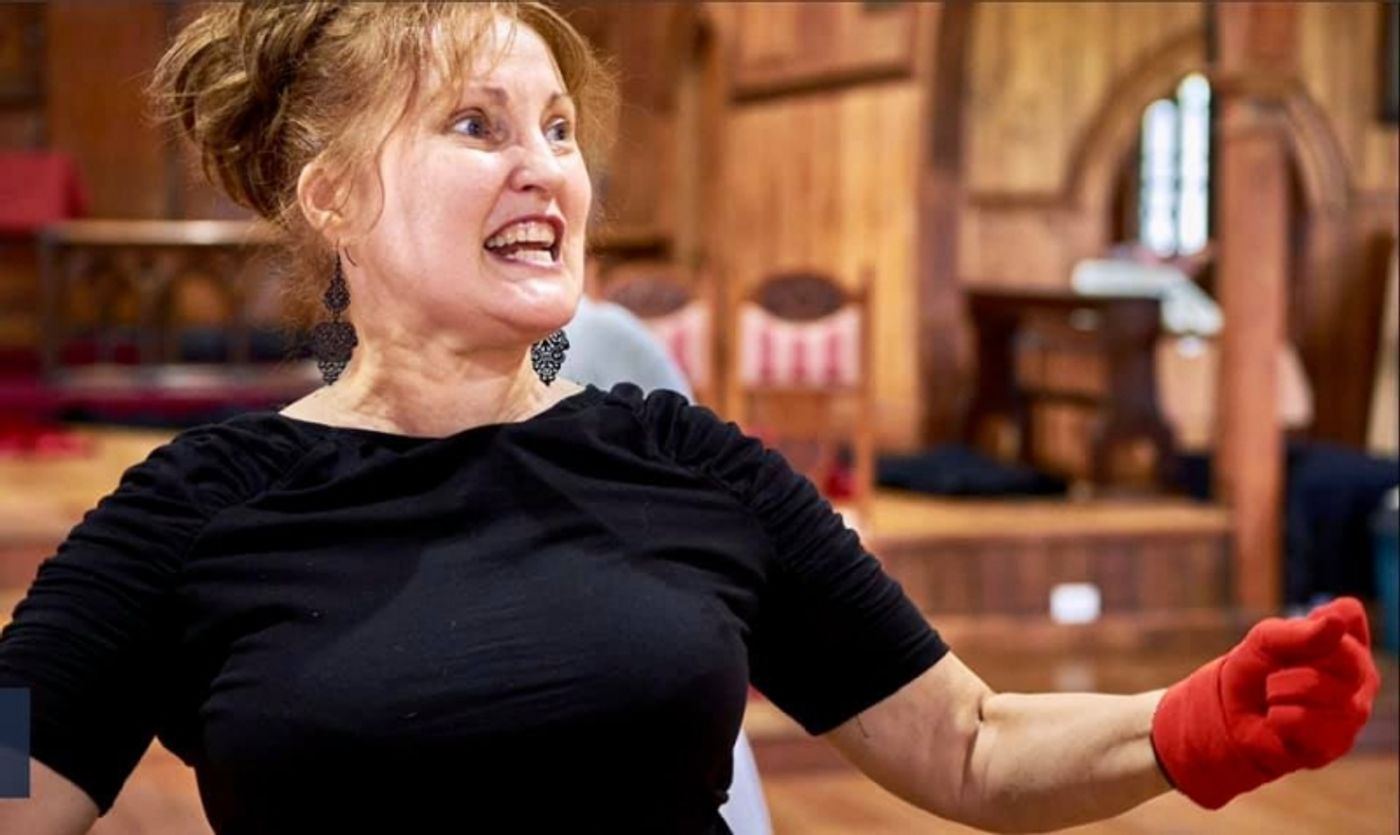
VIRAG: And lastly, as it is women's history month, what texts or media would you recommend we consume to better educate ourselves?
ASABI: My advice would be for people to educate themselves about their own areas; where they live. Find historical texts, archival footage, anything they can find that might help them learn more about the history of where they live right now. Seek information from elders, peers, educators. It's all out there, one just has to find it.
LISA: There are a number of social histories written about women in European history that I've read and enjoyed. One that comes to mind is The Prospect Before Her: A History of Women in Western Europe 1500 - 1800 by Olwyn Hufton. I would also, of course, recommend that people have a look at Olympe de Gouges' body of work, particularly her Declaration for the Rights of Woman and the Female Citizen. Mary Wollstonecraft's works were also ground-breaking and she was an English contemporary of De Gouges. Her A Vindication of the Rights of Woman was enormously influential.
Show: The Revolutionists
Company: The Curators
Director: Michael Beh
Tickets: https://www.curators.com.au
CAST BIOS:
Asabi Goodman
Asabi is a Brisbane based actor and singer with almost 40 years of experience in vocal and stage performance. She has a Bachelor of Science degree in Chemical Engineering from the University of Southern California (Los Angeles), where she was a founding member of the awarding winning, all female a cappella group, The USC Sirens, and also has an Advanced Diploma in Stage and Screen Acting from the Australian Performing Arts Conservatory (Brisbane). Asabi has spent many years honing her performance skills by singing with various chorales, performing in a number of musical and staged theatre productions, and singing in bands.
Asabi has appeared in a number of stage productions including, Disenchanted (Australian Premiere - Noosa and Melbourne for Mad About Theatre), as The Princess Who Kissed the Frog, Flaws and All (Brisbane for Monteagle & Lynch), as the Fairy Godmother, and RESPECT: The Show (Australia for McGee Entertainment) as Erma Franklin. Asabi has also appeared as an extra in the films Pirates of the Caribbean: Dead Men Tell No Tales (Walt Disney) and Dora and the Lost Cities of Gold (Paramount), and the television series, Harrow (ABC), and has had roles in a number of short and independent films.
Lisa Hickey
Lisa has worked extensively in Theatre in Brisbane, appearing in many La Boite productions including The Enemy Within, The Perfectionist, No Exit, The Threepenny Opera, The Secret Diary of Adrian Mole, Plastik, Angry Housewives, The Summer of the Seventeenth Doll, The Maids, Popular Front and War Women; in Toadshow's Conway Christ and The Hound of Music; Acronym's King Lear, The Visit and Teachers; Fractal's Female Parts, The Yellow Wallpaper and The Untouchable Julie. After moving to Melbourne in the mid-90s, Lisa did a lot of film and T.V. work including Blue Heelers, Australia's Most Wanted, Neighbours, Backberner, Stingers, ads, educational and corporate videos and ABC Radio Drama. After returning to Brisbane, she has appeared in That Production Company's When the Rain Stops Falling, The Curators' Uncle Vanya, Ghosts and The Revolutionists, and The Arts Theatre's A Clockwork Orange and The Caucasian Chalk Circle. She also recently performed in an Audible sci-fi podcast. Lisa has also done considerable voice-over work and countless radio promo and ad work. She studied Drama at University of Qld.
Lauren Roche
Lauren brings a range of versatile skills to The Curators' Theatre. As a performer she is an actor, singer, dancer and presenter. Lauren's first production for The Curators' was Henrik Ibsen's Ghosts (Regina). Other theatre credits include; That Production Company When the Rain Stops Falling (Young Gabrielle York, Judith Wright Arts Centre), Doubt (Sister James), God of Carnage (Annette Raleigh), Pains of Youth (Marie), A Lie of the Mind (Sally), Two Weeks with the Queen, all directed by Tim Wynn; Ipswich Music Theatre Company Mary Poppins (Mary), Ladies in Black (Patty), Wicked (Nessarose), Les Miserables and The Sound of Music (Elsa Schraeder); Ipswich Little Theatre: An Inspector Calls, Stepping Out, Sin Sex & the CIA, Sex, Drugs Rick 'n' Noel; Redcliffe Music Theatre: Mary Poppins; Play reading The Destruction of You and Me by Tammy Weller as part of That Production Company's Performance-In-Progress season; Other: Presenter work includes Ipswich City Council (ICC) Mayor's Christmas Carols, ICC's New Year's Eve Events, Ipswich.
Lauren has a Bachelor of Business (University of Queensland), ATCL (Associate Diploma in Speech & Drama-Performing, Trinity College, London), Certificate of Performance - Singing (Australian Music Examinations Board). Short Courses-NIDA (Acting) and Queensland Shakespeare Ensemble (Absurd Theatre).
Amanda McErlean
Amanda is a founding member of The Curator's Theatre and part of the ensemble's core committee. As a proud member of MEAA since 2000, Amanda has performed in many roles across a range of media. Her most recent performance for TCT was Anita, the grieving mother in Philip Ridley's compelling two hander Vincent River. In 2017, Amanda co-created, produced and performed the solo role of Simone in The Quighting Time with TCT as part of the Anywhere Festival. Her other performance credits include Theatre: The Curators' Theatre: Uncle Vanya; Make Theatre: Mortality and Polity (Adelaide Fringe Festival and Brisbane season); Black Light: Crave (Metro Arts); Emerge Project and Judith Wright Centre: Generation Pizza, Carbon Footprint Cabaret, Going Down (Ten x Ten Squared), Lexie Turns To Stone, Perfect10; Stage Door Productions: The Hollow; Starbuck Productions and QPAC: Murder on the Nile; Improbable Theatre (UK) and Brisbane Festival: Sticky; Web Series: Two Weeks, Scout. Television: Slide (Playmaker Media/Hoodlum Entertainment). Film: Rise, Pipe Dream; Training: Amanda has trained with master teachers and professional artists including Jean-Pierre Mignon, David Field, Scott Williams (Impulse Company), Margi Brown Ash, Andrea Moor, Steven Mitchell Wright and Chris Sommers; Awards: Nominee Matilda Award - Best Emerging Artist.
Videos

